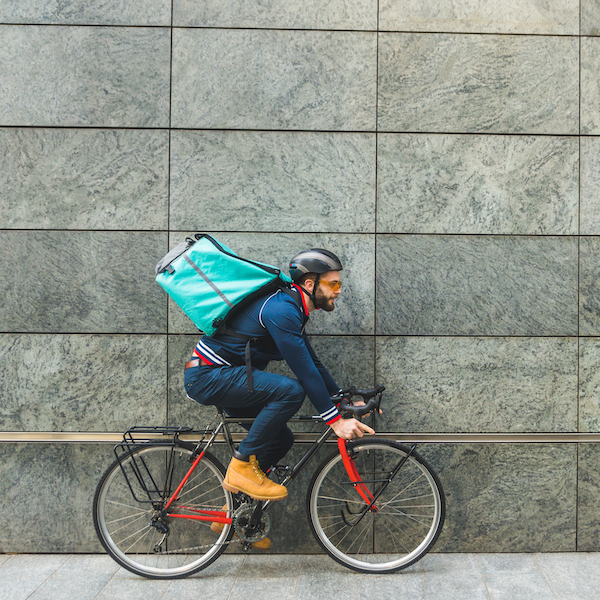Last week the City of Boston announced a new pilot initiative, Boston Delivers, an e-cargo bike delivery program. It’s officially launching in September in Allston to make deliveries to and from local businesses. If it proves to be successful, it will spread to other neighborhoods.
The goal is to support local businesses, reduce pollution, ease traffic congestion, and improve street safety. The city is contributing ~$345,000 towards the new program, with the bulk of the majority of the money being spent on labor, outreach, and equipment.
“The way our small businesses and residents use our city’s curbs has changed over the last few years, and we’re launching Boston Delivers to explore how to make our streets flow more smoothly and safely for everyone,” said Mayor Michelle Wu. “This bike delivery pilot will support restaurants with an affordable, green, and convenient delivery option while reducing congestion on our streets.”
The rise of delivery services following the pandemic has led to more congestion outside local businesses and double parking in bus, bike, and vehicle travel lanes. This has led to more conflicts among pedestrians, cyclists, and vehicles, which has increased the potential for serious injury. Boston Delivers aims to improve safety on our streets by reducing the size, speed, and environmental impacts of delivery vehicles.
The City will subsidize the delivery costs for up to eight businesses, making delivery costs more affordable for local businesses, with funds from Massachusetts Clean Energy Center’s (MassCEC) Accelerating Clean Transportation for All (ACT4All) Program (funded by MassCEC and the Department of Energy Resources). This program will also help businesses provide a delivery service where they may not already offer one.
This pilot program has several key learning objectives that will help pave the way for the operation of e-cargo bikes for delivery. These key learning objectives are:
- Identify the policies, programs, and regulations that need to change to allow for e-cargo bike delivery in the City of Boston;
- Test infrastructure changes needed to accommodate e-cargo bike delivery, including but not limited to e-cargo bike delivery zones, staging and sorting areas, parcel lockers, and other last-mile logistical needs;
- Measure the benefits of e-cargo bike delivery, including its impact on environmental, safety, and economic metrics;
- Understand the costs and feasibility of e-cargo bike delivery for different types of businesses;
- Communicate to delivery service providers that the City of Boston is ready for delivery services to utilize e-cargo bikes.
Boston Delivers will serve as a case study for The Urban Freight Lab at The University of Washington to help inform worldwide efforts to encourage deliveries on e-cargo bikes. The Boston Transportation Department has partnered with Net Zero, a leading final mile logistics provider, to carry out the pilot. Net Zero will provide and manage the fleet of e-cargo bikes and related equipment, make the deliveries, and manage the logistics.
You can learn more about this pilot program here.
Maureen Dahill is the editor of Caught in Southie and a lifelong resident of South Boston sometimes mistaken for a yuppie. Co-host of Caught Up, storyteller, lover of red wine and binge watching TV series. Mrs. Peter G. Follow her @MaureenCaught.




